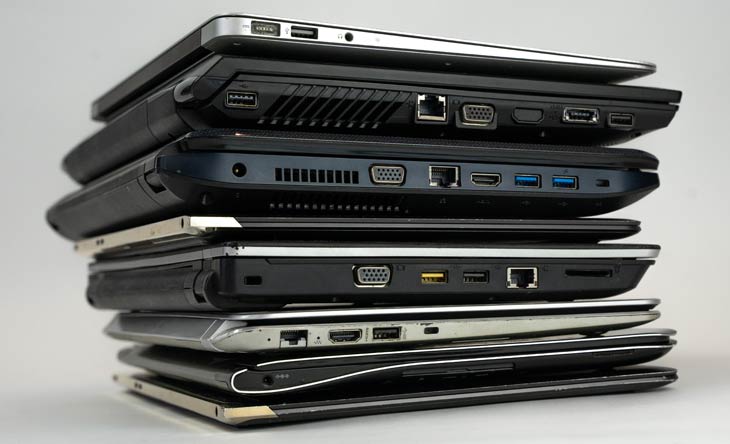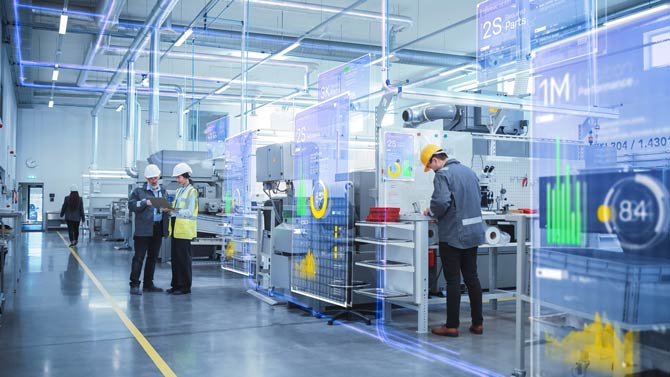
In today’s world, the concept of sustainability is at the center of many discussions and considerations, especially in the context of the production and use of technology. The high consumption of resources and the increasing problem of electronic waste pose significant challenges for society and the environment.
Within this context, the laptop plays a special role. As an indispensable tool in almost all areas of life, from education to work to leisure, hundreds of millions of new laptops are produced and sold worldwide every year. This has a significant impact on the environment, starting with the procurement of materials, through production, to energy consumption and ultimately disposal.
This raises the question of the extent to which used laptops can serve as a sustainable alternative to new models. Reusing laptops could help reduce resource consumption and waste production, thus contributing to sustainability.
concept of sustainability
Sustainability is a broad concept that is interpreted and applied in many ways. At its core, it refers to the practice of meeting the needs of the present without compromising the ability of future generations to meet their own needs. This often involves a three-pronged approach that considers social, environmental and economic aspects – often referred to as the “triple bottom line”.
The social aspect of sustainability relates to the pursuit of fairness and equality within society, including issues such as working conditions and human rights. The ecological aspect focuses on preserving the environment and natural resources, and the economic aspect aims to ensure financial stability and prosperity.
Regarding the technology industry and in particular the information technology sector, the concept of sustainability is of central importance.
Technological devices such as laptops require a variety of resources to craft, including rare earths and metals. In addition, the production causes significant CO₂ emissions and leads to the production of electronic waste, which is often not disposed of properly. Therefore, the challenge for the technology industry is to find ways to minimize these impacts and extend the lifespan of devices to move down a more sustainable path. This thought leads to consideration of the extent to which used laptops and their continued use can contribute to this goal.

Environmental impact of laptop manufacturing
The production of laptops has significant environmental impacts ranging from material sourcing through manufacturing to transportation and ultimately disposal. Procurement of materials for laptops is a complex process that requires a variety of resources. This includes common materials like plastics and metals as well as rare earths and other specialized elements. Extracting these materials can cause significant environmental impacts, including energy use, landscape degradation, water pollution, and air pollution.
The energy consumption in the manufacturing phase is also significant. This applies not only to the direct energy required to manufacture the laptops, but also to the indirect energy used to extract, process and transport the materials.
Transport processes also contribute to environmental pollution. The long distances covered by the components and finished products cause significant CO₂ emissions and thus contribute to global warming.
Finally, the lifespan and disposal of laptops is another critical factor.
Laptops tend to have short lifespans, often no more than a few years, and many are not properly recycled or disposed of. This leads to an enormous amount of electronic waste, which often contains toxic substances and is difficult to dispose of.
This overview of the environmental impact of laptop manufacturing underscores the importance of strategies to reduce that impact and improve sustainability in the technology industry. It also shows why using used laptops is being considered as a possible solution.

Used laptops and their sustainability
Used laptops are those devices that have already gone through one or more usage cycles. They can be resold or given by companies or individuals and represent an alternative to buying new equipment.
The use of used laptops offers several advantages from an environmental point of view. Reusing an existing device instead of buying a new one can significantly reduce resource consumption. This is because no new materials are required for manufacture and the energy normally used for production is saved.
In addition, the use of used laptops can contribute to waste reduction.
By extending the lifespan of a laptop, the amount of electronic waste that is generated is potentially reduced. This can help reduce the amount of toxic substances entering the environment and reduce the burden on landfills. Using used laptops can also help reduce CO₂ emissions. Since both material extraction and production use significant amounts of energy and thus generate CO₂ emissions, laptop reuse can help reduce these emissions.
Still, there are also challenges and potential downsides to buying used laptops. These include uncertainty about the condition of the device, the limited warranty, potential incompatibilities with the latest software, and the potential lack of customer support.
In addition, used laptops may not include the latest technological developments or features that may be important to certain users.
The overall picture suggests that used laptops can offer significant sustainability benefits, although there are also challenges to be aware of. This finding underscores the importance of developing strategies to overcome these challenges and encourage wider acceptance of the use of used laptops.
Conclusion and Outlook
Various aspects were highlighted in the discussion about the sustainability of used laptops. It has been shown that the manufacture of laptops has a significant impact on the environment, both through resource consumption and CO₂ emissions in the production phase and through the generation of electronic waste at end-of-life. Used laptops offer a way to reduce this impact by reducing resource consumption, reducing the amount of electronic waste and lowering CO₂ emissions.
For society and the environment, these benefits could have a significant impact. They could help reduce pollution, conserve resources and combat climate change. This would benefit both current and future generations and would be a step towards a more sustainable future.
Both consumers and businesses have an important role to play in promoting sustainability in the technology industry. Consumers can do this by making a conscious decision to buy used laptops, thereby increasing demand for these products. Businesses can help by facilitating the buying and selling of used laptops and educating their customers about the benefits of this practice.
Looking ahead to the future development of the used laptop space, it is likely that interest in and demand for these products will continue to grow, especially given the increasing importance of sustainability in society. Nevertheless, challenges remain, especially with regard to quality assurance and customer satisfaction. Meeting these challenges requires further innovation and investment in this area.
In summary, used laptops have the potential to contribute to a more sustainable tech industry. They offer a viable and effective way to reduce the environmental impact of laptop use and their further promotion should be considered a priority.
Source: https://www.blog.de/nachhaltigkeit-gebrauchter-laptops/


